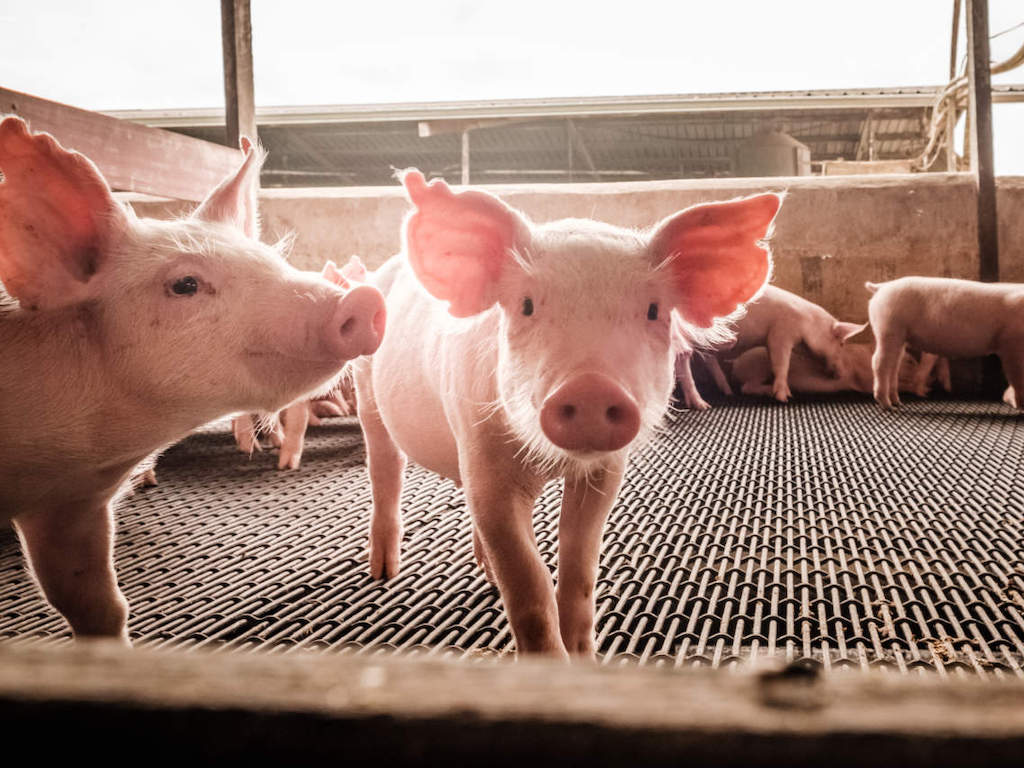3 Mins Read
For the first time in U.K. law, animals are to be recognised as sentient beings, which will ensure that legislation across the board takes into account the fact that animals are capable of experiencing pain, joy and other emotions. The new Animal Welfare Sentience Bill that has been introduced in parliament has been hailed a win for animal welfare campaigners, paving the way for a number of measures including the end to cruel live animal exports.
Animals are to be formally recognised as sentient beings under a series of legislation that will cover pets and farm animals within the U.K. and offer some protections for animals outside of the country through its impact on animal-related trade.
The sentience bill will mean that all domestic legislation will have to consider the feelings of animals, as the government looks to push a number of welfare measures including the end of live animal exports – which puts 5 million animals at risk every day – as well as banning the import of hunting trophies and stopping people from keeping primates as pets.
Formally recognising in law that animals are sentient and experience feelings in the same way humans do is just the first step.
Lord Goldsmith of Richmond Park
Other measures include banning shark fin imports and a potential halting of foie gras, produced by force feeding birds to swell their livers up to 10-times their normal size, until the organ is diseased.
Launching the bill, animal welfare minister Lord Zac Goldsmith said: “Formally recognising in law that animals are sentient and experience feelings in the same way humans do is just the first step in our flagship Action Plan for Animal Welfare which will further transform the lives of animals in this country and strengthen our position as a global leader.”
Fighting the rise of pet theft, barring the use of e-collars that gives electric shocks to train animals and preventing puppy smuggling over the border are among some of the policies outlined in the action plan.
However, despite recognising the sentience of vertebrae animals, the U.K. government has stopped short of ending the use of cruel conditions such as caging animals for poultry production, though it pledged to provide incentives for animal farmers to improve the welfare of their herds.
Many campaigners have pointed out that ending factory farming will be a must going forward – not only to improve the well-being of animals, but to prevent future health disasters and to combat the climate crisis. Livestock farming contributes an estimated 18% of all global greenhouse gas emissions, according to the United Nations FAO data.
We should not expect anything less than granting sentient beings the legal recognition they unequivocally deserve.
James West, Senior Policy Manager, Compassion in World Farming
Activists have added that public support for an end to cruel factory farming is on the rise in the country, with a recent survey conducted by OnePoll revealing that 85% of the British public are in favour of an immediate ban on factory farming, many citing concerns over emerging infectious diseases as the main reason for their support of such a ban.
Describing the milestone as a “very welcome step”, Claire Bass, executive director of Humane Society International emphasised that the government’s animal welfare plan “must be designed with the right expertise, independence, resourcing and access to information to enable it to provide robust and constructive scrutiny.”
James West, senior policy manager of Compassion in World Farming agreed, saying the organisation “warmly welcome[s] today’s publication of legislation that recognises animals as sentient beings – capable of experiencing joy, pain and suffering,” but added that there must be safeguards in place to ensure that “all due regard to animal sentience” is paid in policy formulation.
“As a nation of animal lovers, we should not expect anything less than granting sentient beings the legal recognition they unequivocally deserve,” West added.
Lead image courtesy of Shutterstock.




